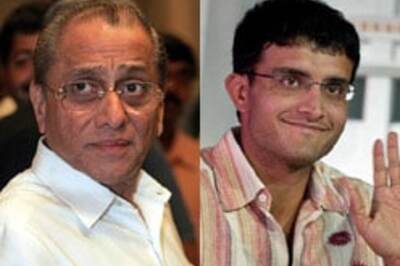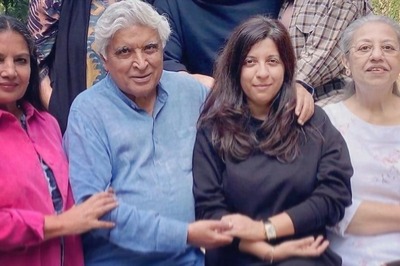
views
New Delhi: A man of the masses and firm in his political convictions, Atal Bihari Vajpayee was the first non-Congress prime minister to complete the full term of five years. That he smiled his way through the ‘unwieldy coalition’ of more than a dozen unruly and demanding political parties speaks volumes about his excellent statesmanship.
Vajpayee was an orator par excellence, a darling politician, and a spirited leader who was often seen as a moderate face of the Bharatiya Janata Party (BJP).
In his career spanning over four decades, the veteran parliamentarian was elected a record nine times in Lok Sabha and twice in the Upper House. As prime minister, Vajpayee went far beyond his party’s nationalist political agenda to secure Indian secularism and democracy.
Some applaud his optimistic foreign policy, others cheer India’s economy under his government; the rest, meanwhile, remember him as an ardent champion of social equality.
Foreign Policies
In the unipolar world created after the disintegration of the Soviet Union in 1991, Vajpayee boosted trade and cooperation with the US on strategic issues. In 2000, Bill Clinton became the first American president to visit India since Jimmy Carter in 1978.
Vajpayee championed resolving land disputes with China through dialogue and further improved trade ties with the Dragon. He also established strategic and military cooperation with Israel to combat terrorism.
His greatest effort, however, lay in seeking peace with India’s immediate neighbour, Pakistan. In 1999, in an iconic symbol of international diplomacy, Vajpayee personally travelled on the inaugural Delhi-Lahore Bus — a regular road link between the two countries for the first time since 1947 — to sign the historic ‘Lahore Declaration’.
For all its hype and promise, the peace and bilateral friendship between the two nations lasted only three months before the outbreak of the Kargil war in May 1999. The second effort by Vajpayee at the 2001 Agra summit was overshadowed by the India-Pakistan military standoff — following two successive attacks on India’s sovereignty: first, the J&K legislative assembly and then Parliament — that brought the two states with nuclear weapons dangerously close to another war.
Economic Policies
The Vajpayee government took the baton of economic liberalisation from the PV Narasimha government (1991-96) and privatised many state-controlled institutions.
To foster employment and bolster infrastructure, special export processing zones, information technology and industrial parks were built. The National Highway Development Project was launched with that vision, spearheaded by the Golden Quadrilateral — a highway network connecting many major industrial, agricultural and cultural centres of India.
The Pradhan Mantri Gramin Sadak Yojana was planned as a network of all-weather roads for unconnected villages across India.
His economic policies not only changed the BJPs image from that of a nativist party uncomfortable with modern trends but also put India on the pedestal of later economic growth — he vacated the office for Manmohan Singh in 2004 with GDP rate above 8 per cent, inflation below 4 per cent and with overflowing foreign exchange reserves; not to mention, he did that in the face of natural disasters, the oil crises, the Gulf and the Kargil war, the 9/11 attack, and the Indo-Pak military standoff.
Social Programmes
Vajpayee pioneered the ‘Sarva Shiksha Abhiyan’ to provide free and compulsory education to children between the ages of six and 14, and within four years of its launch in 2001, the number of out-of-school children dropped by 60 per cent.
With the launch of Pravasi Bharatiya Samman in 2003, his administration initiated plans to establish an overseas citizenship of India to facilitate NRIs to invest and do business freely in India.
Vajpayee believed in ever modernising, ever renewing, ever re-energising, and therefore, encouraged scientific research and increased government spending on Research and Development. In the Independence Day speech in 2003, he announced the Chandrayaan-I project, which five years later made India the fourth country to have its flag on the Moon.
Shine on, Mr Vajpayee!
















Comments
0 comment